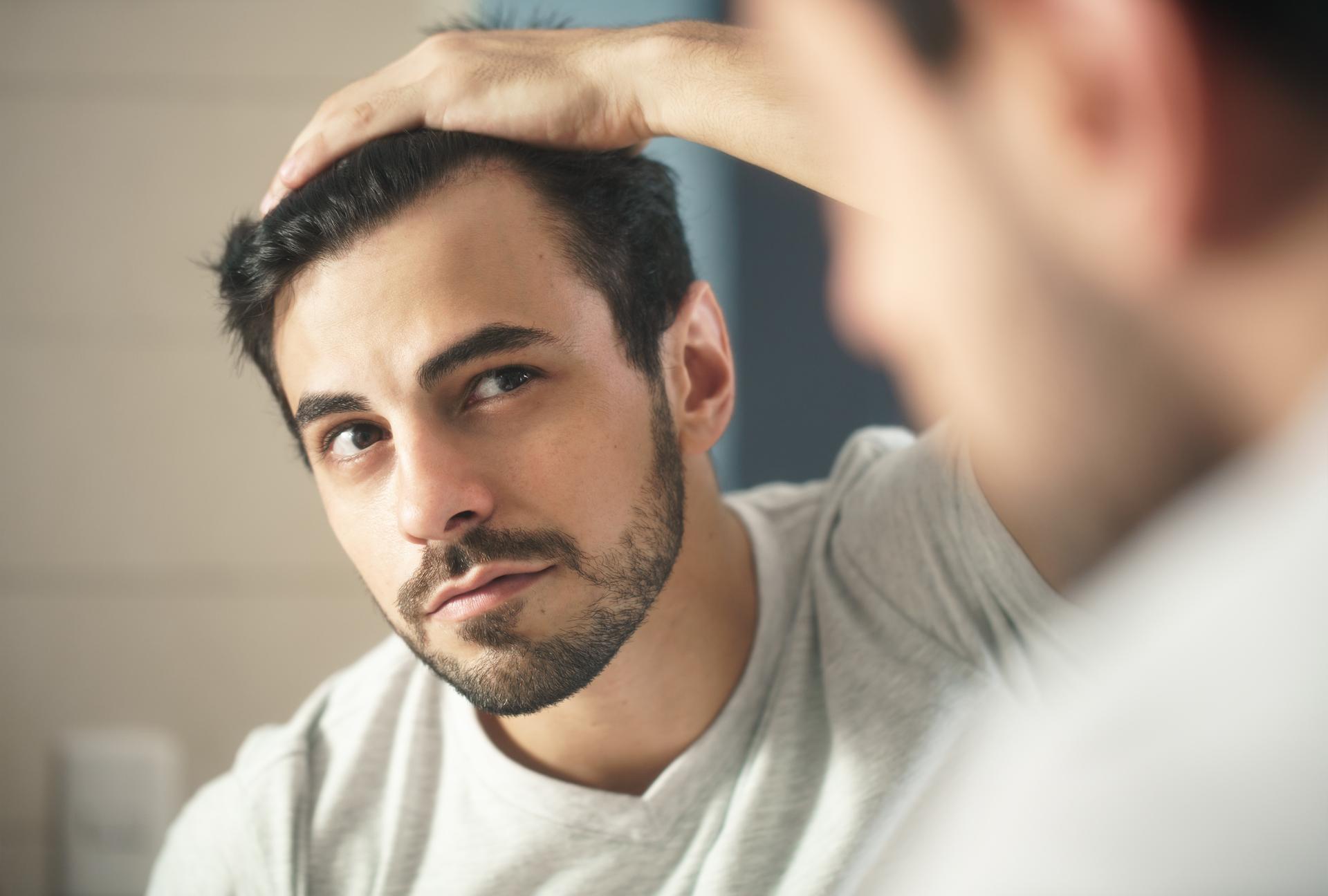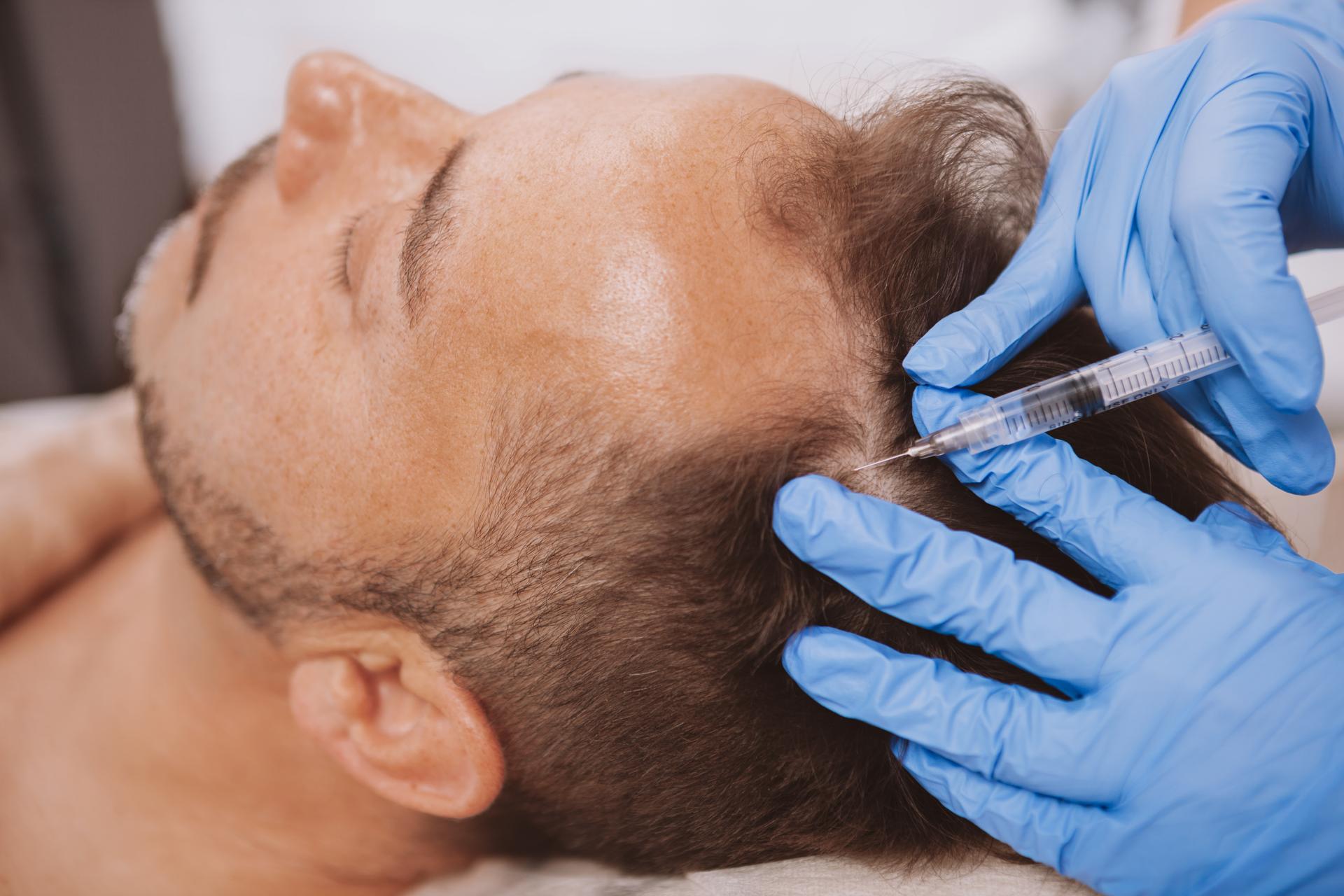Do you find a huge chunk of hair stuck to your comb after one brush? Is your bathroom floor covered with hair after a shower? If yes, the problem may be more severe than you think.
While it is quite natural to lose around 50-100 hair strands a day, is losing 200-300 hairs a day normal? Not! If you neglect such extensive hair loss for long, you will face the consequences, such as a loss in your hair’s thickness, and your hairline will continuously recede.
Seeking professional help as soon as possible can reduce the problem since you need to find and address the root cause to stop uncontrolled hair loss. For instance, the most common cause of hair loss in 95% of men is androgenetic alopecia, and the condition requires timely and proper treatment.
What Causes Hair Loss, and How Can It Be Prevented?
You need to pay attention to your hair if you are losing 200-300 hairs a day. Seeking professional help is advisable, but here are some of the causes that might lead to losing so many strands of hair a day.
See Also: What Are the Most Common Types of Abnormal Hair Loss Conditions?
1. History of Hair Loss in the Family
If your family has a history of baldness, chances are you will eventually have the same problem. While bald spots are more noticeable in men, baldness in women starts by showing clear signs of thinning near the crown.
2. Hormonal Imbalance
Hormones play a huge role in hair growth on any part of your body. Thus, any slight change in their compositions may trigger severe hair loss.
3. Scalp Infections
Several medical conditions result in losing 200-300 hairs a day. Conditions like alopecia areata, radiation therapy, ringworm infection, and excessive scratching or pulling of hair can be the primary reasons behind hair loss.
4. Side Effects of Medicines
Certain kinds of medications may have severe side effects that include hair loss. One of the most common is chemotherapy for cancer. Medicines prescribed for high blood pressure, depression, heart, etc., have also been shown to accelerate the loss of hair.
5. Hairstyling
Using chemical and other styling products on your hair may look beautiful, but continuous exposure to them will have shocking results on your hair. Heat and chemicals like bleach can have a direct impact on the hair loss you experience.
6. Stress
You may be surprised at the extent your mental health affects your hair. If you burden yourself with too much stress, the result will be excessive hair loss.
What Are the Available Treatments for Hair Loss?
The evolution of science has given us various solutions to handle the issue of hair loss. But before opting for any hair loss treatment, consult a professional licensed dermatologist first.
1. PepFactor
Rejuvenating the skin cells of the scalp with a dose of protein is extremely effective in stimulating hair growth which is why PepFactor for hair loss is so effective. The 146 amino acid polypeptide chain is responsible for providing additional nutrition to the fibroblasts under the skin of the scalp, which stimulates the hair follicles and induces hair growth.
2. PRP Hair Treatment
PRP treatment stands for platelet-rich plasma treatment. In the PRP Hair Treatment, blood is collected from the individual, and the platelets are extracted, which are then injected into the hair follicles of the scalp. The platelets effectively reduce hair loss, thereby increasing hair thickness.
3. FUE Hair Transplant
FUE hair transplant has a different approach when it comes to the treatment of hair loss. In this procedure, hair follicles are obtained from any part of the body that has good hair growth. The extracted hair follicles are then planted in the areas where the hair is scarce. Follicular unit extraction is extremely effective but comes with minor side effects, such as tiny scars in the areas of extraction.
4. FUT Hair Transplant
The FUT hair transplant procedure slightly varies from the FUE. FUT involves cutting an entire skin area with an abundance of hair to extract hair follicles. These follicles are then transplanted in bald spots. The procedure is quite complicated but can be carried out effectively while the patient is put under local anesthesia.
See Also: FUE vs. FUT Hair Transplant – What Are the Differences?
Care at Home
While a severe hair loss needs to be treated medically, there are certain things you should do at home, too, such as:
- Treat your hair gently and use a comb with wider teeth. This will reduce the risks of pulling your hair out due to vigorous brushing.
- Limit exposure to intense heat, both natural and artificial.
- Call it quits on tobacco to prevent hair loss.
Final Takeaway
None of the hair loss treatments is life-threatening, but to see results and get your money’s worth, you must consult experienced and licensed professionals from the best hair transplant clinic in NJ. If you are suffering from extensive hair loss, consult us at New Jersey Hair Restoration Center for the best hair transplant in New Jersey. We will take complete care of your hair health.


